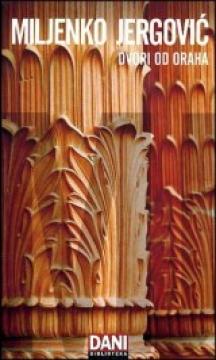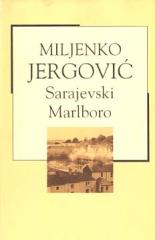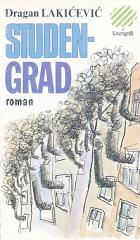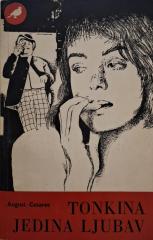
Dvori od oraha
„Dvori od oraha“ (2003) jedan je od najpoznatijih i najdirljivijih romana Miljenka Jergovića. Ovaj roman ostaje jedno od najvažnijih književnih svjedočanstava o 20. stoljeću na Balkanu i o cijeni zaborava.
Pripovjedač, dječak po imenu Miljenko (alter ego samog pisca), vraća se u mislima na sarajevsko naselje Grbavica i kuću svoje bake Regine Delavale, rođene Jesenjin. Kuća je okružena velikim orahom koji baca hlad na dvorište i postaje središnji simbol romana – drvo pamti, štiti i svjedoči povijesti jedne obitelji i jednog grada.
Priča je fragmentarna, sastavljena od kratkih poglavlja-vinjeta koja prate sudbine članova obitelji Delavale od početka 20. stoljeća do raspada Jugoslavije. Tu su Regina i njezin muž Mladen, njihova djeca, unuci, susjedi – Židovi, Muslimani, Srbi, Hrvati – koji žive zajedno u sarajevskoj svakodnevici punoj mirisa kave, pjesme, svađa i ljubavi. Kroz dječje oči promiču veliki povijesni događaji: dolazak Austrije, Kraljevina, Drugi svjetski rat, ustaše i partizani, socijalizam, pa konačno rat u BiH 1992–1995. koji razara grad i rastjera obitelj.
Jergović ne piše klasičan povijesni roman; on bilježi miris orahovog lišća, zvuk starog radija, okus bakinih kolača i tihe trenutke u kojima se događa prava povijest – ona osobna, intimna. Dvori od oraha postaju mikrokozmos Bosne: mjesto gdje su ljudi različitih vjera i nacija dijelili isti hljeb, a onda su isti ti ljudi, ili njihovi sinovi, počeli pucati jedni na druge.
Roman je istovremeno elegija za izgubljeno djetinjstvo, za Sarajevo koje više ne postoji i za Jugoslaviju kao ideju zajedničkog života. Napisan je jezikom punim nježnosti i ironije, bez patetike, ali s dubokom tugom koja se ne da sakriti.
Jedan primjerak je u ponudi





